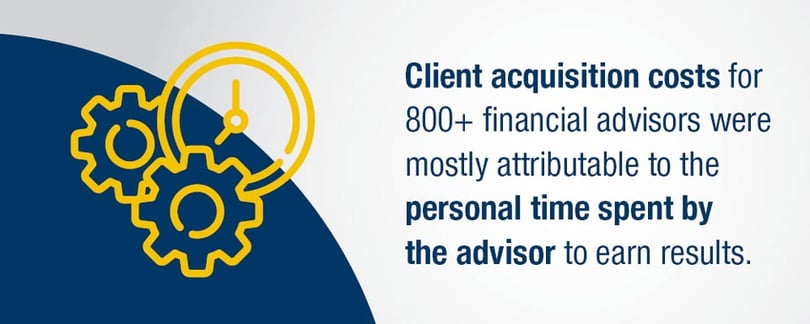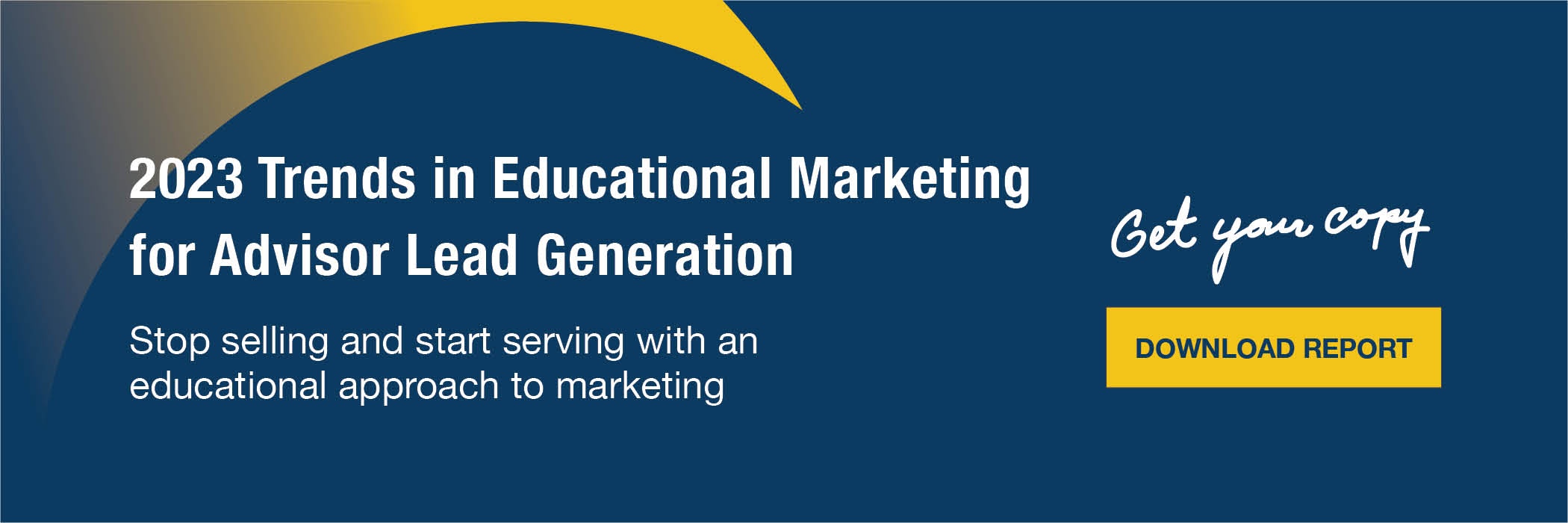Every few generations, we’ve seen transformations in the way we work. There was the move from the fields to the factories in the Industrial Revolution, the rise of women in the workforce in the WWII era, and the communications and productivity gains of PCs and email in the 1990s.
How people learn does not transform often. For the most part, education has meant traditional teachers in front of chalkboards since the dawn of public school. But now, in the post-COVID era, the definition of education is broadening beyond conventional school — and improving with the help of technology. As the growth of hybrid and remote work has dramatically changed the workforce, education and financial literacy programs have had to reinvent themselves as well.
Take the financial services industry for example. Educational marketing strategies for financial services are quickly emerging as a surefire bet for growing firms.

Versatile financial education platforms solve the client acquisition puzzle
-1.jpg?width=357&height=536&name=pasted-image-0-(5)-1.jpg)
The emergence of hybrid working models has taught us a lot about what’s possible — and has accelerated communication technology by a decade. These same changes have made it possible to enhance existing models of education-based marketing for financial advisors.
For years, financial advisors have used the internet to support client acquisition with business blogs, LinkedIn outreach, cold sales emails, and search engine advertising. These more traditional digital marketing methods have less and less traction every year as the internet becomes flooded with them. What worked in the open frontier of the 90s and early 00s has lost a lot of steam in today’s glut of ads and content. It’s hard to be heard above the noise.
A Kitces report on insights from 800+ financial advisors showed that not only is the cost of earning new clients unpredictable, but costs are mostly tied to the valuable personal time of the advisor. One-on-one interaction with your audience is just not a scalable way to grow your business. This is why seminars are such a popular way to go. However, a financial literacy program — either in a virtual course or an in-person classroom setting — can be a strong alternative to normal seminar marketing. Why?


Educational marketing programs fill this niche well and make an effective alternative to normal seminar marketing. Why?
 Today’s audience spends their time with DIY and visual learning
Today’s audience spends their time with DIY and visual learning
The DIY, YouTube culture of the 2020s makes no secret of how people spend their time. According to Statista, U.S. internet users now consume more than 15 hours of digital video each week. Educational online videos appeal to people who like to do their own research on questions. Visual communication is simply so much more information dense than educational text.
 Education multiplies face-to-face interactions with the right people
Education multiplies face-to-face interactions with the right people
When you teach a financial education course, you’re more than a banner ad, some dry business blog text, or a dinner-and-a-seminar invitation. You’re an authority figure on financial matters, engaging self-selected, interested people directly and proving your expertise while addressing their personalized questions and concerns. The option to use virtual formats further expands the social advantages of the classroom to a scalable, nationwide pool of prospects.
 An educational environment inspires trust
An educational environment inspires trust
Educational marketing programs are a form of relationship building that a sales-focused seminar simply can’t match. We’re inundated with sales messages in our modern world. Audiences are right to be skeptical of a sales pitch. Instructing a brief course on financial literacy gives you the opportunity to build a relationship in a non-sales setting and develop that critical element of trust.
 The tools are already there
The tools are already there
Advisors that were once hesitant about financial literacy programs are now amazed at how much more quickly they can “form quick rapport and meaningful relationships,” as reported by ThinkAdvisor. Turnkey programs like FMT empower advisors with a proven platform, an exclusive marketing area, FINRA-reviewed course materials, and 1:1 coaching and support to help you master your role as a trusted course instructor and earn new clients.

Educational marketing platforms are making meaningful connections for advisors
-1.jpg?width=392&height=261&name=pasted-image-0-(6)-1.jpg)
Enrollment trends for financial literacy programs are accelerating like never before. Virtual options are now smoothly blended with in-person options, so every potential client can approach you in a way that makes sense to them.
Our advisors regularly describe incredible success in following up with course attendees and seeing those connections blossom into long-standing client relationships.
For example, this case study shares the story of Mark, an advisor who attracted 10 attendees, 7 appointments, and roughly $2M in new AUM after leading just a single two-class course — with more clients & AUM in his pipeline. “All these attendees brought significant AUM to the table, mostly in the one to three million range,” Mark reported, but he was even more impressed with the number of follow-up meetings that his educational offerings earned him. “Seven out of ten? I’ll take that any day. After those initial meetings, we were able to schedule closing appointments with five of those prospects. We’re incredibly pleased with that.”
A typical result from teaching just one FMT course would include:
-1.jpg?width=810&height=326&name=pasted-image-0-(7)-1.jpg)
We’ve perfected the FMT platform across more than 20 years of educating over 500,000 affluent professionals, pre-retirees, and retirees. Contact us today to learn more about our financial marketing services and how a single online course could spark valuable new client relationships.
